An online survey from Lending Tree and ValuePenguin.com found that the global COVID-19 pandemic has caused a wave of loneliness and worry among senior citizens. Favorite places have been temporarily closed and activities canceled, while restrictions on public gatherings and every other precaution have seemingly narrowed in on our older relatives.
Fortunately for older adults, top-tier senior living communities have adapted quickly and responsibly to guarantee residents’ safety during the pandemic. With strict adherence to CDC guidelines for curbing and managing the pandemic, assisted living facilities (ALF) are showing to provide the safest and most fulfilling places for an older adult to live.
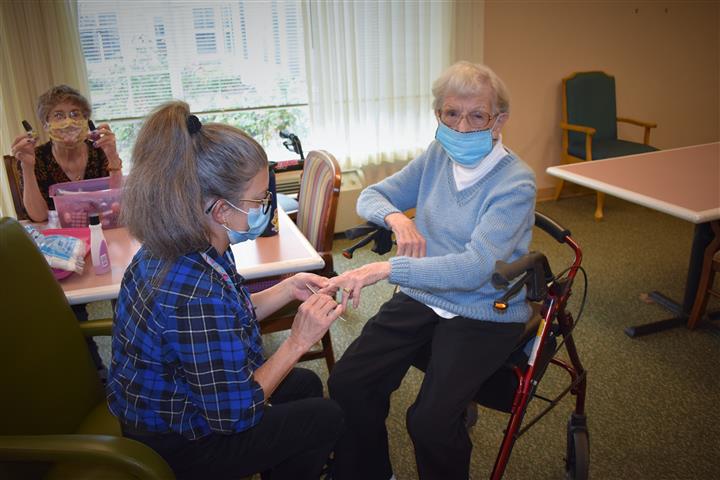
Spruce Point Assisted Living enrichment leader offering a hand to assist a resident (Florence, OR)
Are you wondering whether moving into an assisted living community is a smart move during a pandemic? Have a look at our brief rundown to help you understand why it may be the safer option as opposed to keeping our seniors at home, leaving them lonely and oftentimes feeling isolated and scared.
Highly Trained Caregivers
ALF communities maintain highly skilled professionals who offer practical and emotional support to older adults, including those with disabling, chronic, or serious health conditions. The highly trained caregivers in these facilities work alongside expert healthcare providers with hands-on experience managing outbreaks such as influenza, norovirus, and other infectious diseases.
This high level of staffing gives ALFs an upper hand to successfully manage and contain any outbreak while promoting the utmost safety and health of residents. Additionally, they provide thorough education and ongoing training to all caregivers to ensure strict compliance with all CDC guidelines related to COVID-19 and infection control.
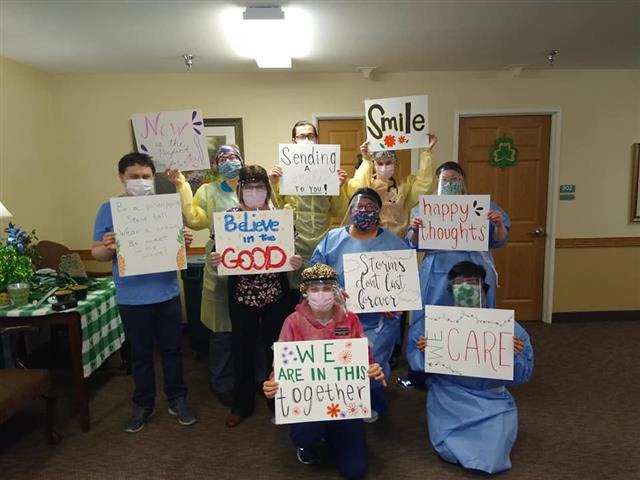
Summit Place Assisted Living caregivers sharing joy and compassion during the pandemic (Bellingham, WA)
Health Monitoring
Experience has demonstrated that patients with COVID-19 may not show common symptoms such as respiratory symptoms or fever, while others may not show any signs at all. Being pre-symptomatic or an unrecognized asymptomatic carrier can significantly contribute to widespread transmission, thus endangering older adults that are not regularly being monitored, as in cases of those living at home.
ALFs have implemented active surveillance to enable them to detect the disease early among residents or staff. These facilities also have laid down infection control measures and restrictions to curb further spread of the disease. Such measures include early quarantining of ill/potentially ill residents or staff, social distancing, closure of communal areas, as well as environmental measures (ie. cleaning and disinfecting high-touch surfaces and adequate access to hand hygiene).
When relaxing any of these measures and restrictions, ALFs remain keen and vigilant for the virus among personnel and residents to prevent spread, future waves, hospitalization, or death.
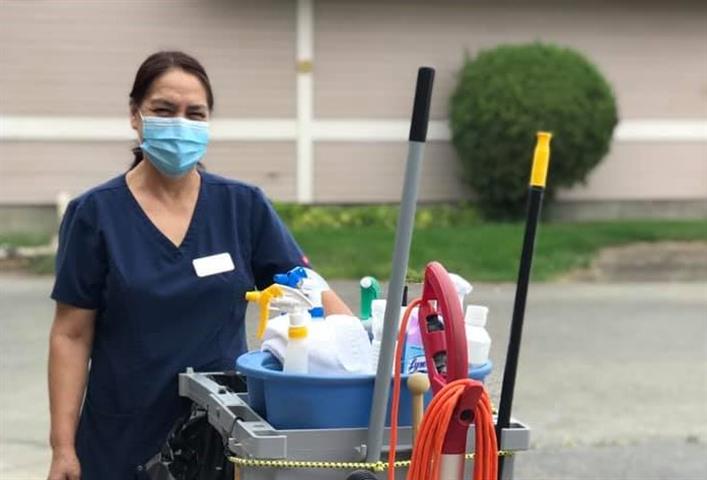
Sunnyside Assisted Living housekeeping staff working to ensure health and safety of residents (Sunnyside, WA)
24/7 Support Staff
Seniors’ well-being and health require a higher level of support and care. This help may not be promptly available at home. Assisted living communities render personalized care to older adults round the clock and sometimes with the simple push of a button.
24/7 care in the ALFs is available through scheduled visits from an interdisciplinary team ranging from nurses, caregivers, physicians, social workers, a dietary team, and enrichment leaders. The nurse and the physician oversee the medical care and regularly update the residents’ care plan as the need arises.
In addition, each resident’s personal hygiene, mental, emotional, and spiritual needs are met on an individual basis, based on each resident’s unique needs or preferences. An ALF community also offers timely delivery of medical equipment such as a wheelchair, bedside commode, walker, medications, and other supplies as the resident requires them.
Such kind of care and support minimizes stress for elderly individuals and helps them maintain a strong immune system and stay healthier overall.
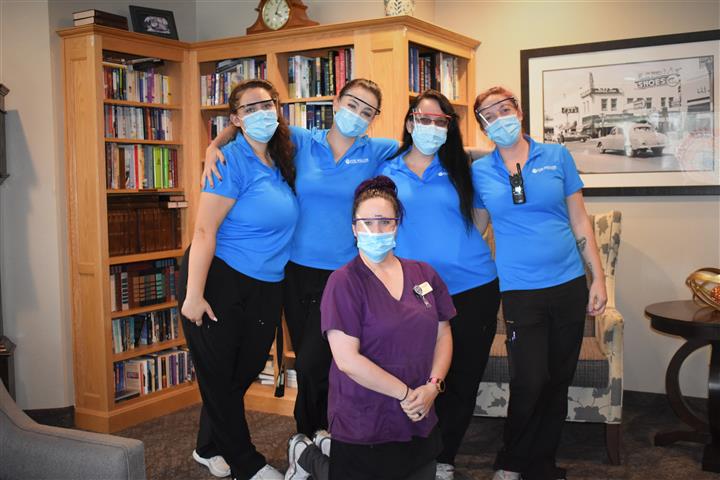
Loving and compassionate team of caregivers at Fox Hollow Senior Living (Eugene, OR)
Adequate Use of PPEs
Personal Protective Equipment (PPE) plays an integral part in preventing the transmission of infections in any public or healthcare setting. For instance, facemasks offer both source control and protection of the wearer against sprays and splashes from infectious material. ALFs are particularly adhering to CDC guidelines on the use and wearing of PPE whenever in the facility.
Residents are also strongly encouraged to wear facemasks whenever they leave their room, including procedures outside ALF facilities to curb transmission.
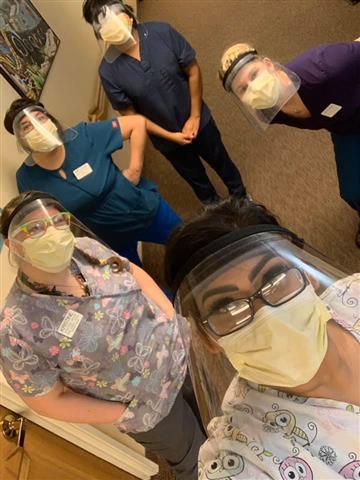
Summit Place Assisted Living staff demonstrating proper PPE (Bellingham, WA)
COVID Testing Capacity
States have since expanded mandatory testing requirements to include ALFs. Viral testing for residents and staff aims to prevent COVID-19 from entering these communities, detecting cases quickly, and curbing transmissions.
ALFs can quickly and safely carry out COVID testing while working with the Department of Health (DOH) and approved laboratories to facilitate early interventions.
How We Can Help
Nightingale is a healthcare solutions company rendering superior skilled nursing and assisted living services throughout Washington and Oregon. Our philosophy is to provide each person we serve with an individualized care plan coupled with an unequaled level of compassion, dignity, and love.
For more information about the services we offer or the communities we serve, feel free to visit our website or contact us directly on 360-656-6609, and we will be more than willing to assist.
